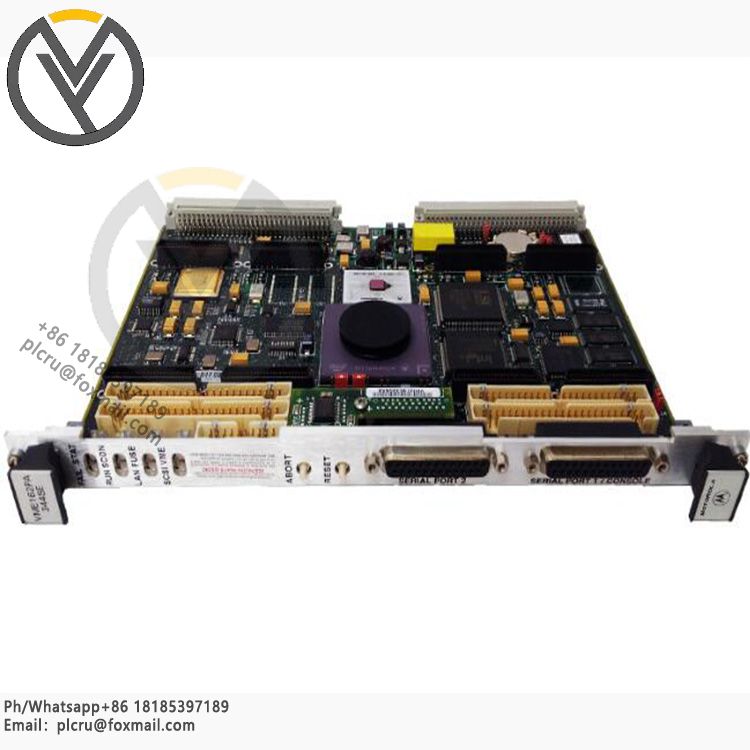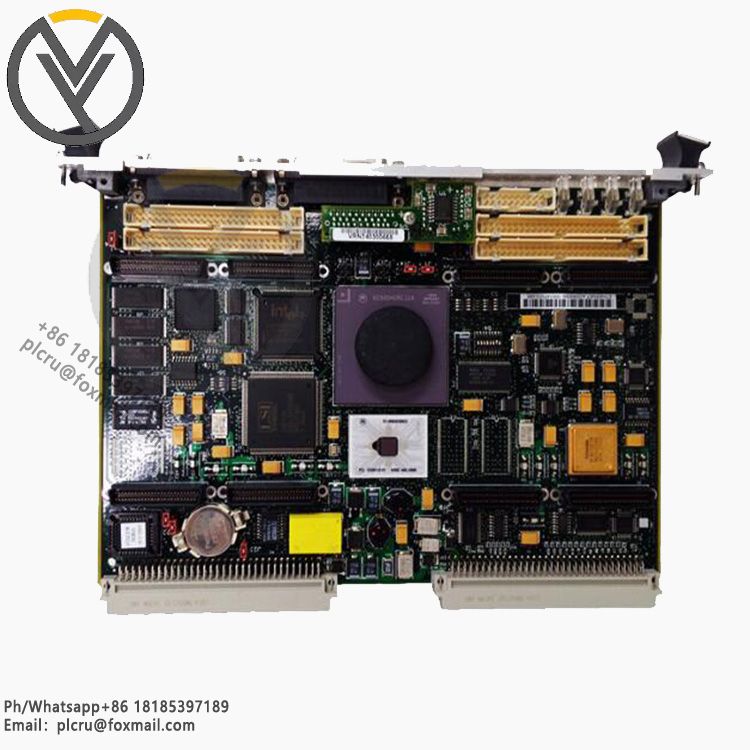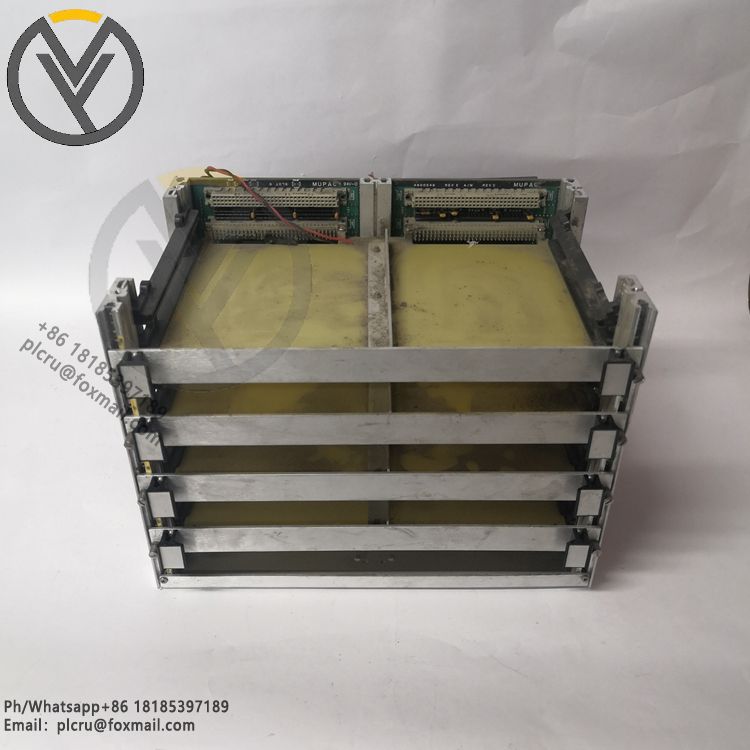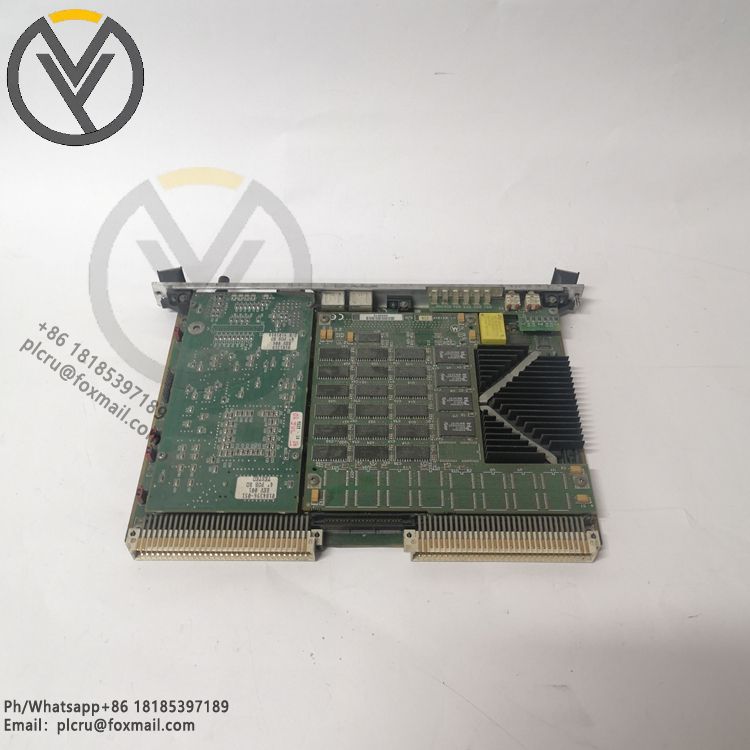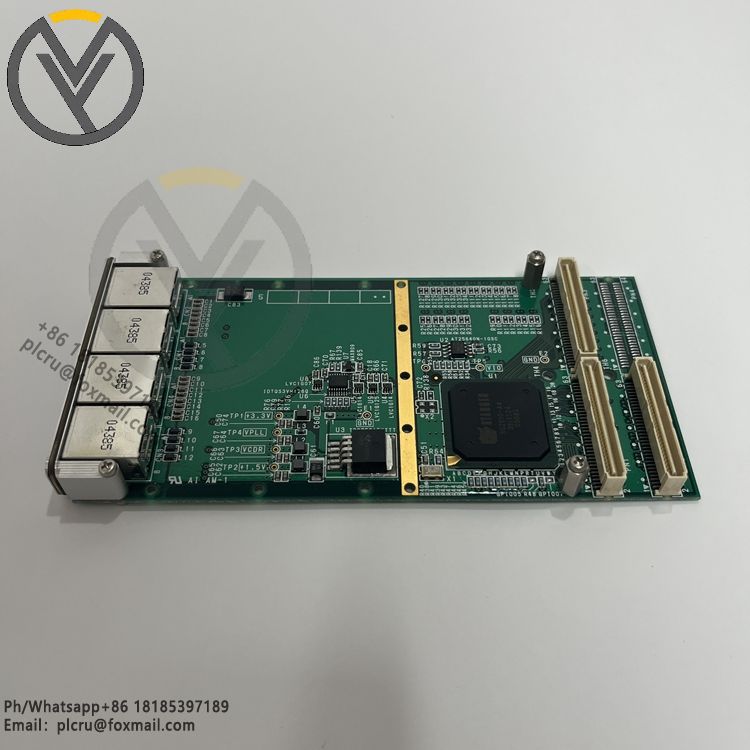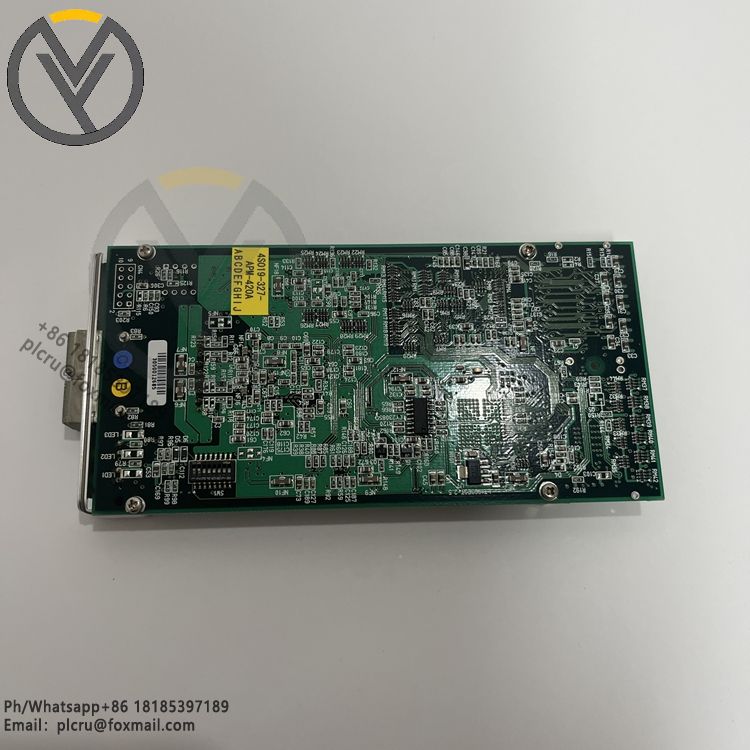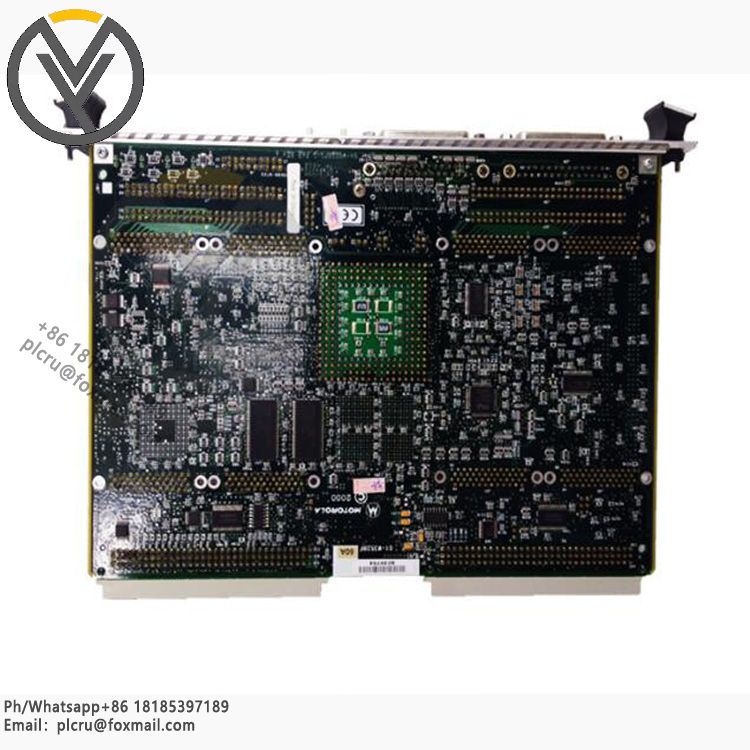
MOTOROLA MVME162-021 Embedded controller
Delivery time 3 days
Product origin New/used
Email plcru@foxmail.com
Mobile/wechat /WhatsApp +86 18185397189
The MOTOROLA MVME162-021 embedded controller is a member of the MVME162 family o
The MOTOROLA MVME162-021 embedded controller is a member of the MVME162 family of embedded computing modules based on vmebus. The controller is designed for use in high-performance, mission-critical embedded systems where reliability, scalability, and extensibility are critical.
Here are some of the key specifications and features of the MOTOROLA MVME162-021 embedded controller:
Processor: The MVME162-021 typically contains a high-performance CPU, such as a PowerPC or other RISC-based processor, which provides the computing backbone for embedded systems.
VMEbus Compatibility: As a VME module, the MVME162-021 is fully compatible with the VMEbus standard, enabling seamless integration into VME-based systems.
Memory and storage: The controller supports various types of memory, including simm(single inline memory module) and other volatile or non-volatile storage options to meet the memory requirements of the application.
I/O and peripheral interfaces: The MVME162-021 provides a comprehensive set of I/O and peripheral interfaces, including serial and parallel ports, network interfaces, and other communication channels needed to connect external devices and peripherals.
System Integration: The controller is designed to work with other MVME162 series modules such as I/O boards, memory expansion modules and other peripherals to create fully functional embedded systems.
Operating System support :MVME162-021 supports a variety of operating systems, including Unix, Linux, and Real-Time Operating System (RTOS), depending on the specific requirements of the embedded application.
Robustness and reliability: The MVME162-021 is designed for harsh environments and mission-critical applications where high reliability and durability are critical.
Scaling and Customization: The controller offers excellent scaling capabilities that allow the addition of additional I/O modules, memory upgrades, and other customizations to meet specific application needs.
